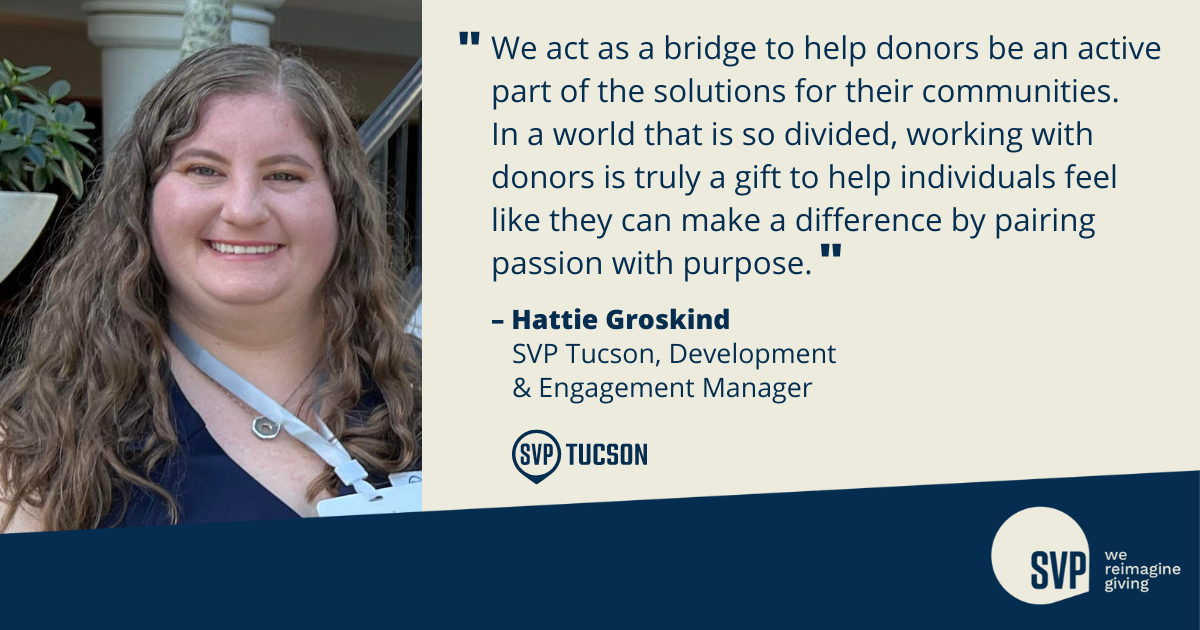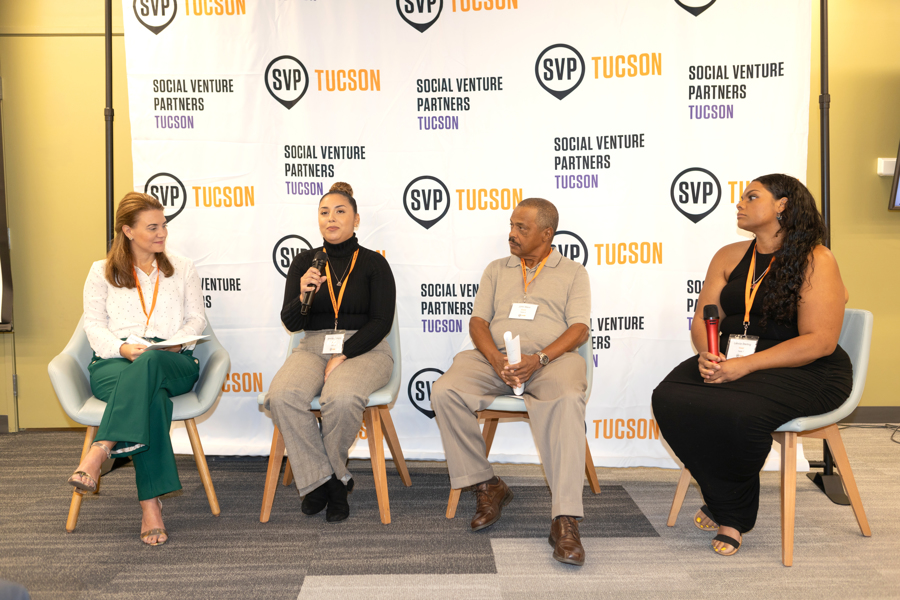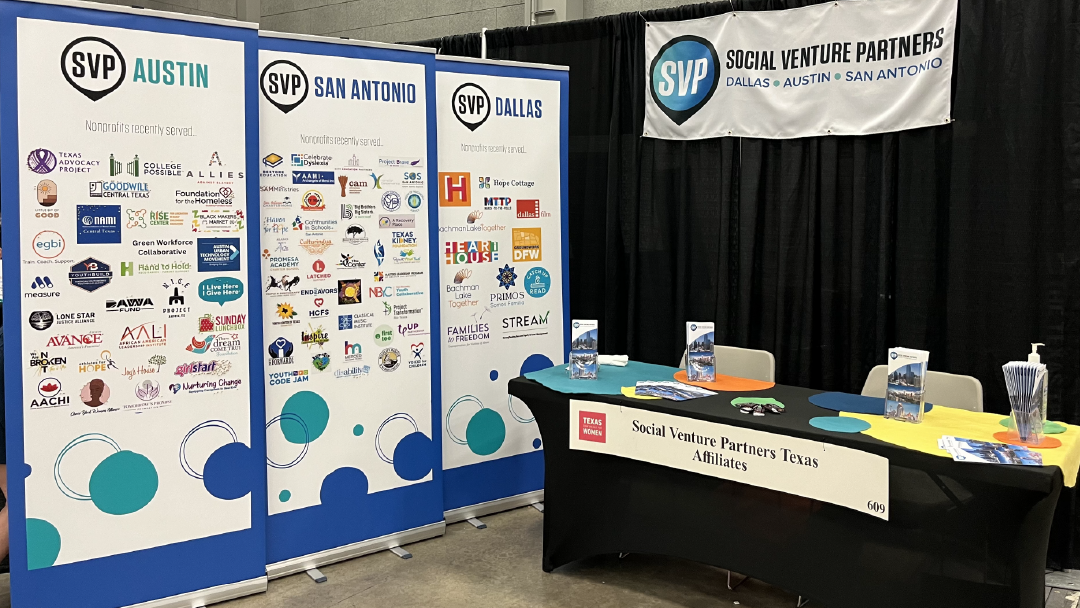Destination Impact: Affiliate Reflections
Hattie Groskind, SVP Tucson
Founded by the Raikes Foundation and now hosted at the Impact Driven Philanthropy Collaborative, Destination Impact has been cultivating spaces for peer-to-peer learning and community-building among organizations dedicated to donor-supported initiatives since 2018. Their recent gathering in Puerto Rico marked the first in-person event since the onset of the COVID pandemic. Four representatives from SVP affiliates were invited to participate, including Hattie Groskind, Development and Engagement Manager at SVP Tucson. Here, she shares her insights into the transformative experience.

Attending Destination Impact filled me with hope about mobilizing resources for social change through collective action. Despite tackling some terrifying realities around the rising threat of fascism and the long history of racial and gender inequity, the space sparked optimism. Connecting with other young, progressive nonprofit leaders working to shift donor mindsets left me feeling fired up.
Some key themes I took away centered around collective fundraising, organizing donors for civic engagement, and addressing power imbalances between donors, nonprofits, and philanthropic institutions. Discussing how to preserve democracy by mobilizing funds from the wealthiest individuals to the poorest communities sparked hopeful conversations, even when the topics discussed were dire.
I also gained helpful vocabulary like “donor organizing” versus simple donor education. Organizing is about changing hearts and minds, not just providing information. It empowers supporters to take action, politically and on a personal level, to examine their own relationship with privilege and power. A great example is SVP Tucson’s recent policy victory in getting Pima County to adopt a “two-generation approach” (2Gen). As defined by Ascend at the Aspen Institute, 2Gen approaches build family well-being by intentionally and simultaneously working with children and the adults in their lives together — centering whole families to create legacies of educational success and economic prosperity that are passed down from one generation to the next. SVP Tucson made it easy for Partners to directly advocate to local leaders — organizing their efforts and, eventually, getting this life-changing bundle of 13 connected policies benefiting whole families passed.
Similarly, we had a sector-wide conversation about “strategic intimacy” that resonated with me. This is the idea of choosing when to connect emotionally versus just professionally. In the philanthropic world, we must form real relationships with donors. We can never see them only as funding sources because, at the end of the day, we are allowing humans to feel fulfilled through their philanthropy. We act as a bridge to help donors be an active part of the solutions for their communities. In a world that is so divided, working with donors is truly a gift to help individuals feel like they can make a difference by pairing passion with purpose. I realize our work has anthropological aspects, as we immerse ourselves in a culture of wealth to observe and understand it without truly becoming part of that group. Maintaining some separation allows nonprofits to avoid upholding problematic power dynamics.
My experience with Destination Impact really reminded me of the magic that happens when passionate, purpose-driven people come together. It made me hopeful for the future, and I can’t wait to bring these conversations back to SVP Tucson. I believe SVPI has the power to catalyze real transformation in the philanthropic space. As I heard more than once at Destination Impact: there’s so much hope in how far we’ve come and so much work still left to do.
Let’s do it together.


